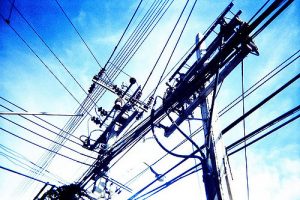With load-shedding still a reality for Zambians, and national electricity consumption continuing to rise, it has never been more urgent to reform the country’s energy sector for a sustainable future.
“Any nation that wants to grow its economy and improve living standards must secure a robust energy supply,” says Better Growth, Better Climate, a 2014 report by the Global Commission on the Economy and Climate.
The need for a reformed energy sector was clearly spelled out in the November 2016 budget speech by Finance Minister Felix Mutati.
He said government would “consider options to improve both the technical and commercial efficiency in the electricity supply industry”, and spoke of the need to move towards cost-reflective tariffs to attract more private-sector participation in the industry. “This, however, does not mean that consumers should end up paying for inefficiency.” The government would also review “the overall structure, governance and operations of the sector, including generation, transmission and distribution”.
That is arguably the clearest indication yet that government is intent on producing an efficient, internationally competitive energy sector that is attractive to Independent Power Producers (IPPs), attractive to both industrial and domestic users, and attractive to the economy. It also necessarily implies that the term ‘cost reflective’ tariffs applies to the cost of an efficient, internationally competitive service.
This is why a Cost of Service Study – funded by the African Development Bank – has been commissioned by the Energy Regulation Board (ERB) in order to determine the actual cost of producing electricity in Zambia – and by implication, how efficient this cost is, compared to international benchmarks. The last time such a study was done for ZESCO was in 2007, and it is now long out of date. The output of this Study should provide the basis for consultations with customers, which would in turn inform, and provide the necessary support for, eventual energy reforms.
There has already been some interesting thinking not just on the broad subject of energy-sector reform in Africa, but also on reform of ZESCO itself. It takes the form of a 26-page paper published earlier this year by the Energy Regulation Board (ERB), entitled Electricity Sector Market Reforms: Getting it right in developing countries, by Besa Chimbaka.
The key takeaway from the paper is that power utilities in developing African countries like Zambia need to be reformed, as they are generally inefficient, in financial trouble and have failed to invest in new power generation capacity.
“[T]he persistence of underperformance of the power sector in developing countries justifies calls for reform,” the paper says.
It adds: “Reforms should not just be aimed at achieving financial efficiency of utilities…They must target such outcomes as affordable tariffs, increased access to electricity and improved quality of service. It has been argued that the design of most reforms has narrowly been based on the performance of the industry alone. A cost-benefit analysis based on the economy as a whole must be undertaken…A full environment scan must be undertaken to ensure that reforms are complimentary and supplementary to the economy as a whole.”
The rigorous, analytical approach that the ERB paper is calling for appears to be a reflection of the fact that some of the energy-sector reforms undertaken in African countries have not been as successful as had been hoped. And this is despite very strong reasons for such reforms, such as ageing infrastructure, poor financial performance (deficits and a lack of capacity to expand) and the fiscal pressure this has placed on governments. For example, the paper refers to “the near bankruptcy” of the public electricity utility in Côte d’Ivoire in 1988-89, which left the government with “no option” but to accept reform in the form of a management contract to a private company.

Two case studies covered in the paper relate to Kenya and Uganda. The outcomes of the reforms undertaken there appear to be mixed.
In Kenya, there was a significant increase in private-sector participation. Rural electricity rates improved, and there was good progress with green energy. However, tariffs remain high and power reliability “is still a challenge”, with an estimated 53 days of outages a year.
In Uganda, the government utility, the Uganda Electricity Board, was unbundled into separate entities for electricity generation, transmission and distribution. Electricity generation “grew significantly”, access rates increased and financial performance improved; however, the “quality and reliability of power supply remain unsatisfactory, while technical and commercial losses remain high”.
One reason cited for the less-than-satisfactory outcome of such reforms is that they were “ill-designed, without focusing on the long-term sustainability of the industry”. Other reasons include weak competition, lack of an effective and independent regulator, and shortcomings in other areas such as political stability, local skills, guaranteed property rights and tax laws.
“Stakeholders are still calling for radical reforms, such as unbundling or privatization of ZESCO.”
“Therefore, reforms in the power-market sector must be accompanied by reforms in the economy in general to provide an enabling environment,” the paper says.
What about ZESCO, and the challenge faced by electricity consumers in Zambia?
The ERB paper acknowledges improvements in ZESCO’s performance from the time it was commercialised in the mid-2000s, but also highlights continued concerns around its monopoly position as the single buyer of power in the country, particularly as Zambia moves to attract more private investors and diversify into renewable energy. “[The] IPPs have raised concerns on the continuation of ZESCO as the de facto single buyer and system operator. Stakeholders have questioned if ZESCO would operate the system fairly and efficiently, because the utility also owns the majority of the generation plants…Dissatisfied with the overall performance of ZESCO, especially during periods of power shortages, some stakeholders are still calling for radical reforms such as unbundling and privatization of ZESCO.”
The genie is out of the bottle. Energy reform in Zambia is no longer a question of if, but when. The performance of ZESCO will be front-and-centre of the coming debate.
























